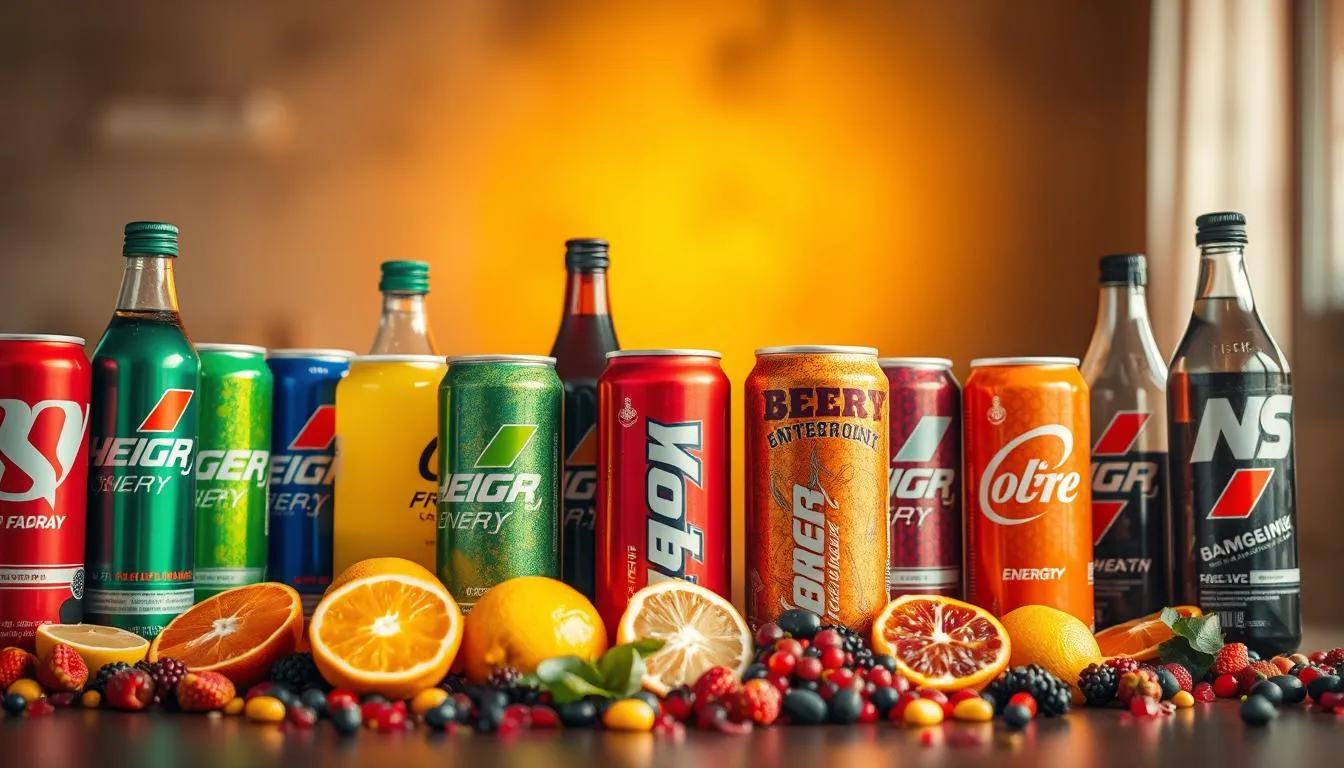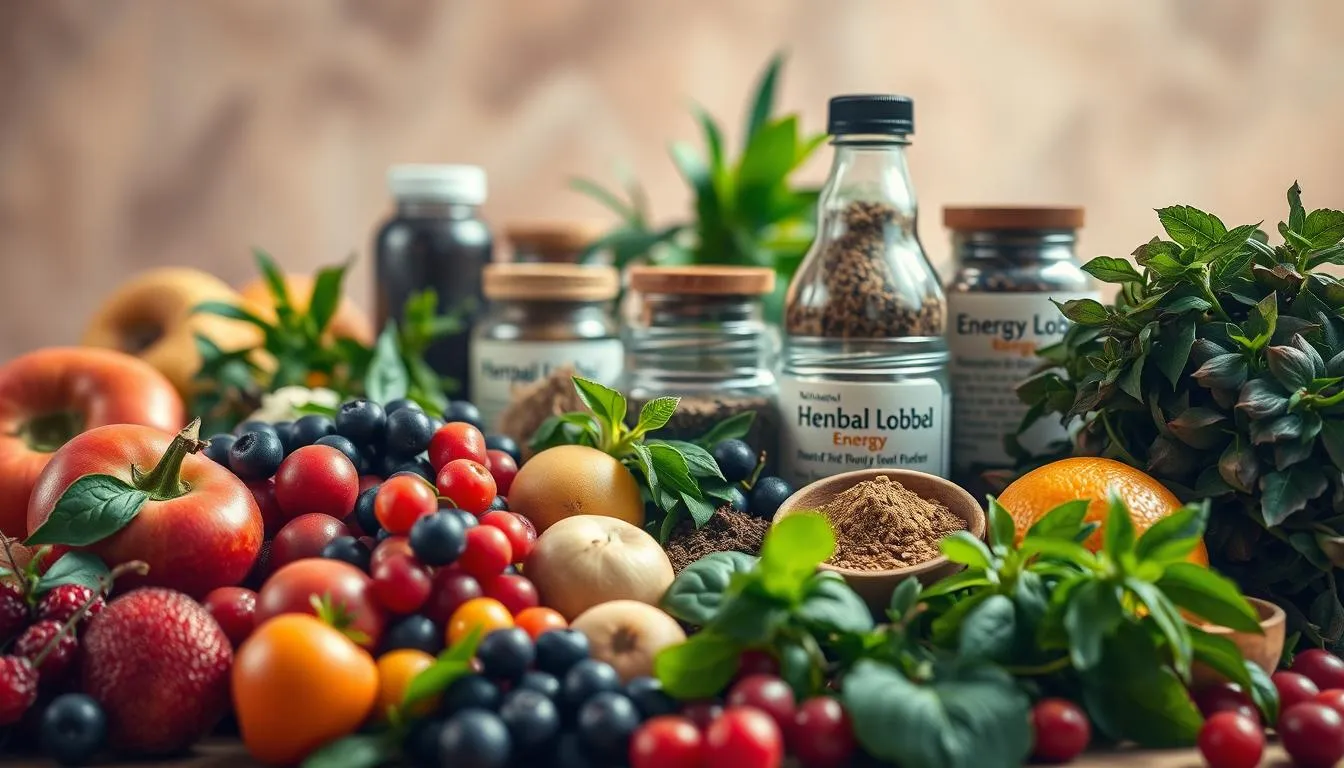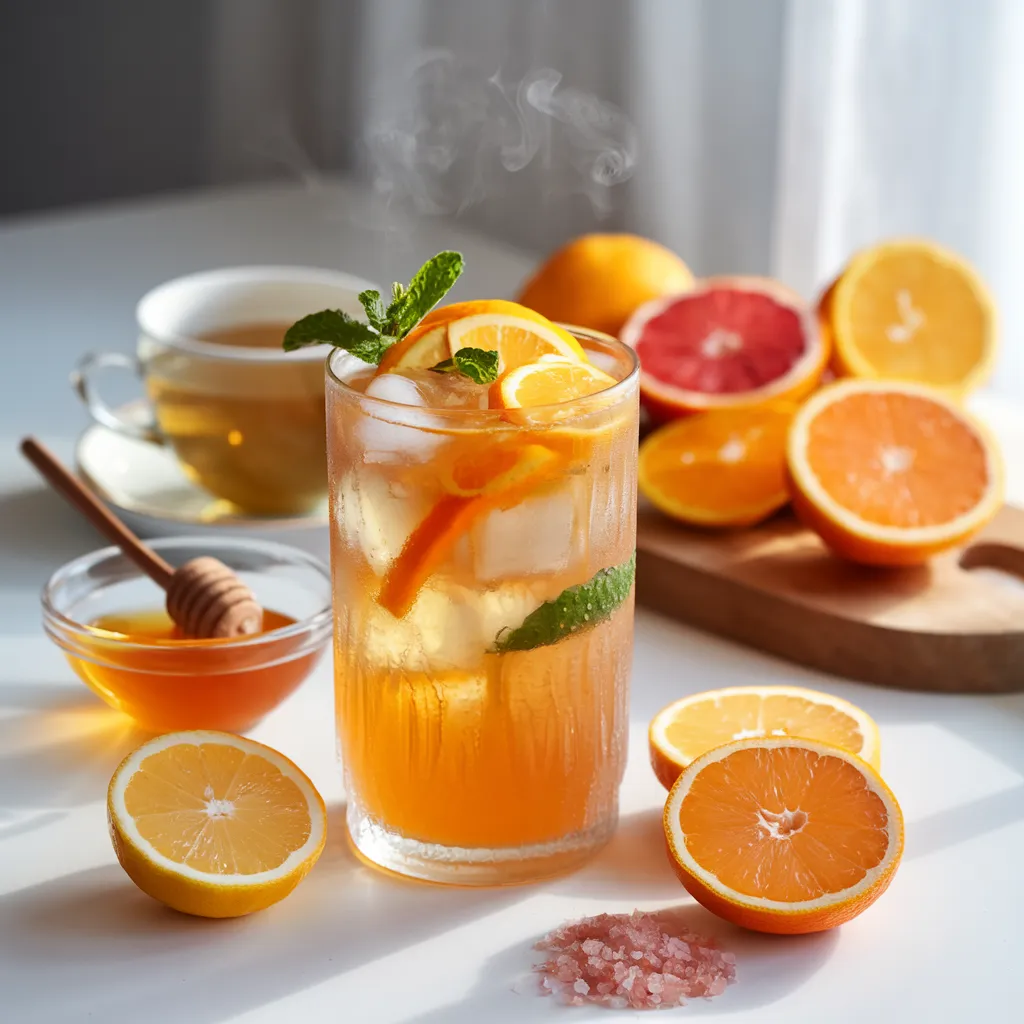Energy drinks have become a daily staple for many—whether it’s powering through a long workday or fueling an intense workout. But not all energy drinks are created equal. The key difference lies in their ingredients: natural energy drinks vs. artificial energy drinks.
Natural energy drinks are made with plant-based ingredients like ginseng, guarana, green tea extract, and B vitamins. These provide a clean energy boost and are often easier on the body. In contrast, artificial energy drinks tend to rely on synthetic caffeine, taurine, and artificial sweeteners, which may deliver a quicker energy surge—but not without potential downsides.

What you choose to fuel your body with matters. Understanding the impact of energy drink ingredients on your health is essential for making informed decisions. While artificial drinks may offer convenience, natural options are often a better choice for those seeking sustainable energy and wellness.
With energy drinks lining every store shelf and online marketplace, it can be overwhelming to know which ones are best. That’s why understanding the differences between natural and artificial energy drinks is more important than ever. The right choice can support your focus, performance, and overall health—without the crash.
Key Takeaways
- Energy drinks can have a significant impact on our health
- Natural energy drinks are made with ingredients like ginseng and guarana
- Artificial energy drinks contain synthetic ingredients like caffeine and taurine
- Choosing the right type of energy drink can make a difference in our health
- Natural energy drinks are a great option for those looking for a healthier alternative
- Artificial energy drinks may provide a quicker energy boost but can have negative side effects
Understanding Energy Drinks and Their Impact
Energy drinks are a big part of many people’s lives. They help us get through long days or tough workouts. But have you ever wondered what’s in them? Energy drink ingredients can be different, from natural stuff like ginseng and guarana to artificial stuff like taurine and sucralose.
Choosing a healthy energy drink is key. Look for ones with natural ingredients. These drinks give you energy without the crash that artificial stuff can cause.
These ingredients can do different things for your body. They can make you more alert and energetic. They can also help your mind work better and reduce tiredness.
Knowing what’s in your energy drink helps you make better choices. You can find natural energy boosts or healthy alternatives to regular energy drinks. There are lots of options out there.
Natural Energy Drinks: Components and Benefits
Natural energy drinks are gaining popularity for their health benefits and lasting energy. They contain herbal extracts, vitamins, and minerals. This mix offers a natural energy boost. Some top choices include green tea, guarana, and ginseng-based drinks.
These drinks give sustained energy without the crash seen in artificial ones. They work by slowly releasing ingredients into the blood. This means energy lasts longer. For instance, guarana has caffeine but releases it slower than artificial sources.
Some well-liked natural energy drinks are:
- Zola Hydrating Energy
- Runa Clean Energy
- Guru Energy Drink (👉 Looking to buy the best energy drinks? Check out our top pick here: 🛒 Boost Your Energy Naturally with GURU ZERO SUGAR!)
These drinks use natural ingredients and avoid artificial flavors and preservatives. They’re also low in sugar and calories. This makes them a healthy choice for energy.

Natural energy drinks offer more than just energy. They also have antioxidants and nutrients. These can protect cells and reduce inflammation. So, natural energy drinks are a smart pick for a healthy energy boost.
The Science Behind Artificial Energy Drinks
Artificial energy drinks are getting more popular, especially among young adults and those who are always on the go. These drinks mix different ingredients like synthetic caffeine, artificial sweeteners, and additives. The science behind them is complex, using chemicals to boost both physical and mental performance.
The main goal of these drinks is to give a quick energy boost. They use synthetic caffeine to do this. This ingredient helps increase alertness, focus, and energy. But, using synthetic caffeine can lead to health issues like a faster heart rate, higher blood pressure, and anxiety.
Some common ingredients in these drinks include:
- Artificial sweeteners, such as sucralose and aspartame
- Other additives, such as taurine, guarana, and B vitamins
- Preservatives, such as sodium benzoate and potassium sorbate
Artificial energy drinks have also faced criticism for their claims of improving performance. Many say they boost physical and mental abilities, but there’s not always solid science backing these claims. So, it’s important for consumers to think carefully about the risks and benefits before choosing these drinks.
Health Implications of Different Types of Energy Drinks
Energy drinks can affect your health in both the short term and long term, depending on their ingredients and how frequently you consume them. While many claim to offer an instant energy boost, not all are created equal—some can support your well-being, while others may do more harm than good.

Short-term Effects on the Body
When consumed, high-caffeine energy drinks stimulate the central nervous system, often resulting in increased heart rate, elevated blood pressure, and temporary mental alertness. However, they can also trigger jitters, anxiety, and dehydration, especially when consumed in excess or on an empty stomach. These effects are most commonly associated with artificial energy drinks that contain synthetic stimulants and added sugars.
Long-term Health Considerations
Over time, frequent consumption of sugary or highly caffeinated energy drinks may lead to several health issues, including caffeine dependency, sleep disturbances, weight gain, and metabolic imbalances. Studies also link high consumption to increased risks of cardiovascular disease, liver stress, and nutrient depletion. Choosing energy drinks made with natural ingredients like green tea extract, coconut water, or adaptogenic herbs can help avoid these adverse effects.
Risk Factors and Warnings
Certain groups—such as children, pregnant women, and individuals with heart conditions or anxiety disorders—should avoid energy drinks altogether. For others, moderation and label awareness are key. Always read the ingredient list and nutrition facts, prioritizing drinks that are low in sugar, free of artificial additives, and transparent about caffeine content.
By understanding these health implications and choosing clean energy drink alternatives, you can enjoy a boost of energy without compromising your long-term health.
Choosing Between Natural and Artificial Energy Drinks
When it comes to choosing the right energy drink, you may find yourself torn between natural and artificial options. Each type has its benefits and drawbacks, and your choice often depends on personal health goals, taste preferences, and how your body responds to stimulants.
Natural energy drinks typically use ingredients like green tea extract, guarana, yerba mate, and natural fruit juices. These beverages often provide a gentler energy lift, thanks to the presence of plant-based caffeine and supportive nutrients like B-vitamins and adaptogens. They’re also less likely to cause jitters, crashes, or digestive upset, making them a popular choice for those seeking a clean energy boost.
In contrast, artificial energy drinks usually rely on synthetic caffeine, artificial sweeteners, and preservatives to deliver a fast, intense surge of energy. While effective in the short term, these drinks are more commonly associated with side effects such as increased heart rate, nervousness, and energy crashes. They are also often higher in added sugars or chemical sweeteners, which can negatively affect metabolic health.
Key Differences:
- Ingredients: Natural (plant-based) vs. Artificial (synthetic)
- Health Effects: Smooth, sustained energy vs. sharp spikes and crashes
- Taste & Price: Natural drinks may be pricier but are often more health-conscious
Ultimately, your decision should reflect your lifestyle. If you prioritize health and wellness, natural options are likely the better fit. If you need a quick boost for performance or focus, an artificial drink may be more convenient—just be mindful of moderation.
Understanding the ingredients, evaluating health impacts, and comparing consumer preferences will empower you to choose the energy drink that aligns with your body and goals.
The Citrus Green Boost Energy Drink, for example, is a vibrant, refreshing beverage designed to naturally invigorate your body and mind without relying on caffeine. Crafted with decaffeinated green tea, fresh orange juice, and zesty lemon juice, this drink delivers a powerful antioxidant punch that supports immunity and overall wellness. Lightly sweetened with honey, it offers just the right amount of natural sweetness to balance its tangy citrus notes.
Perfect for mornings or mid-afternoon slumps, the Citrus Green Boost hydrates while offering a clean energy lift thanks to its vitamin-rich ingredients. The green tea provides L-theanine, which promotes calm alertness, while citrus juices help refresh and revitalize. Best served over ice, it’s a flavorful and functional alternative to traditional energy drinks or sugary sodas.
Ideal for anyone seeking a healthier, jitter-free option, this energizing beverage supports focus, hydration, and immune health—making it a smart addition to any wellness routine.
Try this homemade natural citrus green boost energy drink

👉 Boost your energy naturally with 🛒 CLEAN Cause Zero Sugar Yerba Mate – 160mg caffeine, keto-friendly, and packed with organic goodness!
Last Sip: Making an Informed Decision for Your Energy Needs
The choice between natural and artificial energy drinks is complex. Both can give you a boost, but knowing the differences is key. This helps you pick what’s best for your health goals.
Natural energy drinks use whole foods and are processed less. They offer a better way to keep your energy up. Artificial energy drinks, however, use synthetic caffeine and additives. This can cause energy swings.
When picking an energy drink, think about what you need and want. Look at your energy levels, how you react to caffeine, and your health goals. Being well-informed helps you choose a drink that fits your lifestyle and keeps you healthy.
Join the Conversation!
Drop your thoughts in the comments below and let’s chat about all things beverage!
Frequently Asked Questions (FAQ)
Natural energy drinks use plant extracts, herbs, and caffeine from green tea or yerba mate. Artificial energy drinks, on the other hand, use synthetic caffeine and artificial sweeteners. They also have many additives for an energy boost.
Energy drinks often have caffeine, B-vitamins, taurine, guarana, and ginseng. They also include artificial sweeteners and preservatives. The exact mix can differ a lot between brands.
Energy drinks are popular because they give a quick energy boost. They fit into busy lives, offering a quick way to stay energized. This makes them appealing to many people.
Natural energy drinks have antioxidants, vitamins, and minerals. They give a longer-lasting energy boost without the crash of artificial drinks. They might also help with focus and brain function.
Artificial energy drinks have synthetic caffeine and artificial sweeteners. These can raise heart rate and blood pressure. They can also lead to addiction and health problems over time.
Choose energy drinks with natural ingredients over synthetic ones. Look at the caffeine source, natural sweeteners, and nutrient content. Always check the serving size and drink in moderation, especially if you have health issues.



